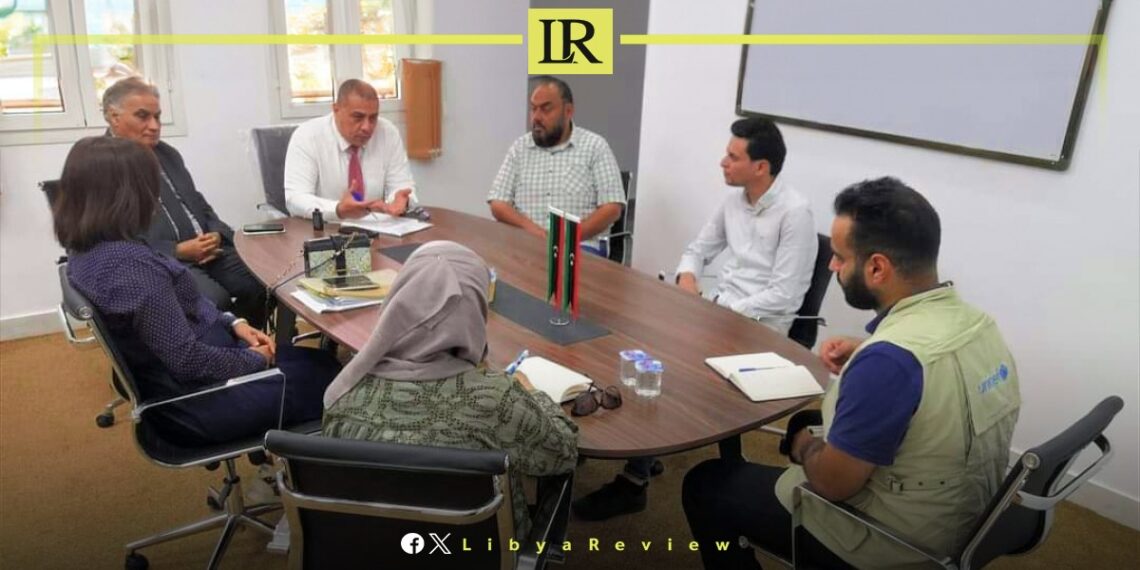On Tuesday, the Libyan Ministry of Health, led by Dr. Saeed Al-Darsi, Director of the International Cooperation Office, held a meeting with Dr. Nuzhat Rafiq, UNICEF Representative, to discuss and enhance their collaborative efforts.
During the talks, Dr. Al-Darsi addressed feedback from previous joint initiatives and proposed strategies to resolve any issues. He emphasized the importance of aligning their efforts with the Ministry of Health’s specific needs.
Meanwhile, Dr. Rafiq reaffirmed UNICEF’s commitment to their shared goals. She confirmed UNICEF’s support for the Ministry of Health’s upcoming child support campaign.
The meeting also focused on the needs of the Sebha region. Both parties agreed on UNICEF’s ongoing efforts in Sebha to address these needs, under the direct supervision of the International Cooperation Office. This approach will be extended to other regions under the Libyan government’s jurisdiction.
Several officials from the Ministry of Health’s International Cooperation Office, along with a representative from the Medical Services Department, attended the meeting.
Libya has been enduring a period of prolonged turmoil since the 2011 uprising that led to the ousting of long-time leader Muammar Gaddafi. The subsequent civil war has resulted in a fragmented state with rival governments and various militias vying for control. This instability has severely impacted the country’s infrastructure, including its healthcare system.
Amidst this backdrop, the Libyan healthcare system has struggled with shortages of medical supplies, insufficient healthcare facilities, and a lack of trained healthcare professionals. These challenges have been particularly detrimental to children and other vulnerable groups, who suffer from malnutrition, preventable diseases, and limited access to healthcare services.
UNICEF, the United Nations Children’s Fund, has been active in Libya for many years, providing critical support to address these issues. UNICEF’s mission in Libya includes delivering essential medical supplies, supporting vaccination campaigns, improving water and sanitation facilities, and implementing educational programs for children. Their efforts are crucial in mitigating the effects of the ongoing conflict and helping to rebuild the healthcare system.


